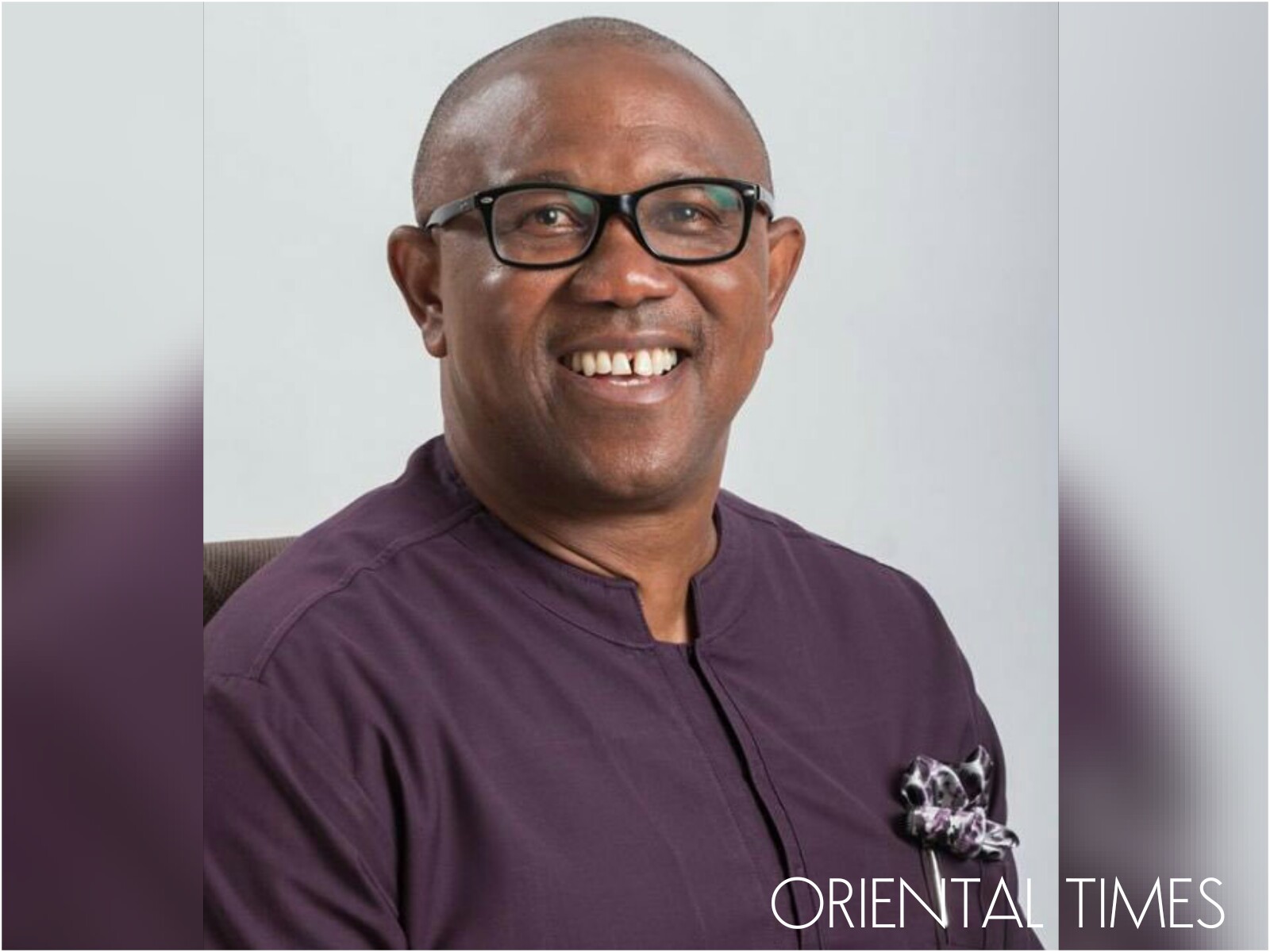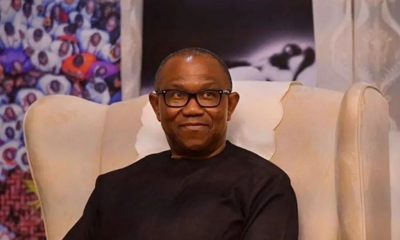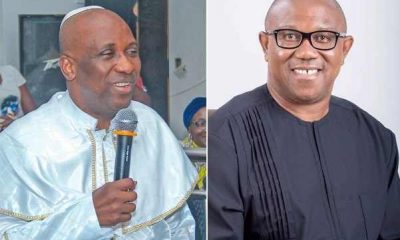Opinion
Peter Obi: A Quintessential Vice Presidential Material

By Tochukwu Ezukanma
There is an Igbo saying, “Nkali a di adi anya nma”, which loosely translates to – the eyes resent superiority – meaning that people will always resent those that are better or superior to them. One of the greatest minds in history, Albert Einstein, subliminally restated this Igbo adage when he stated, “Great minds have always encountered violent opposition from mediocre minds”.
The perplexing but unyielding opposition to Peter Obi’s vice presidential candidacy by a section of the Igbo political elite is a typical case of “Nkali adi anya nma” and a “Great mind encountering violent oppositions from mediocre minds”.
I once met Peter Obi at a reception for visiting All Peoples Grand Alliance (APGA) leaders in Laurel, Maryland, outside of Washington, DC. Then, he was not a governor. He was still in court contesting the rigged election that made Chris Ngige the Peoples Democratic Party (PDP) governor of Anambra State. In a short speech, he talked about why he got into politics, the need to pursue his court case to a conclusive end and his vision and planned programs for Anambra State. His vision for the state centered on transparency, probity and accountability in government. Some of his planned programs were too anti-establishment, anti-elitism and too pro-the common man. Despite my ingrained skepticism for Nigerian politicians, I was exceptionally impressed by him.
I asked him, “How can you implement your planned programs knowing that even your party leaders will oppose many of them”. After all, APGA members and leaders, like most other Nigerian politicians, are fixated on advancing personal interests and reinforcing the status quo. He partially answered my question, and promised to give me additional information in private, as he did not want it to be for public consumption. At the end of the event, he came straight to me, and we walked towards the elevator. He was beginning to provide me with the additional information when the crowd surged towards him. It was not possible for him to continue in the ensuing clangor.
With time, he won the court case, and became the governor of Anambara State. It was a tempestuous gubernatorial ride. Twice, he was removed as governor, and twice, he was reinstated by court verdicts. First, he was impeached by the PDP-dominated state House of Assembly. He successfully challenged the wrongful impeachment in court and was re-instated. Although his tenure had not ended, the Obasinjo presidency in concert with Maurice Iwu-ran Independent National Electoral Commission (INEC) again removed him to make way for an Obasinjo protégé, Andy Uba. He went back to court, won the case and was again reinstalled as governor.
However, after eight years as governor, he had transformed Anambra State. Evidently, he successfully implemented those vision and policies he espoused at the reception in Laurel, Maryland. His achievements were palpable in every facet of life in Anambra State: education, health, infrastructural development, fiscal responsibility, erosion control and security. Obi’s distinguished performance as governor was attributable to, among other things, his incorruptibility and fiscal discipline.
The number one problem of the Nigerian society is the corruption of the political class. Not surprising, most former public officials, including governors are laden with corruption cases. Some have already been jailed, and many others are on bail awaiting trial. Interestingly, after eight years as governor, Peter Obi has no corruption case to answer. The other daunting problem of Nigeria is waste in government. Obi’s tenure as governor was marked by fiscal discipline and remarkable reduction in government profligacy. Not surprisingly, under Obi’s watch, the Nigerian Senate rated Anambra State as the most financially stable state in the country. Secondly, at the time many other state governors were leaving huge debts for their states, as he left office, Peter Obi had paid all the state’s outstanding debts, and left the equivalent of $500 million in investment, including $156million in dollar denominated bonds.
In her recently published book, Fighting Corruption is Dangerous, the former Nigerian finance minister, Ngozi Okonjo-Iwuala, wrote: the Jonathan administration wanted to “rebuild the country’s fiscal buffer” by saving the funds accruing to the Excess Crude Account (ECA). While most of the governors were firmly opposed it, “only Governor Peter Obi of Anambra supported the idea”. The other governors insisted on the immediate sharing of the ECA funds because they needed to splurge the money on their wasteful programs. Is it not then obvious that Nigeria needs the services of this man that, as governor, successfully dealt with the two most potent shackles of good governance in Nigeria (corruption and extravagance)?
Unlike most Igbo politicians, Peter Obi is presidential material. He is one of the likely candidates for Igbo president in the very near future. It is therefore splendid that he, first of all, as vice president understudies the job of the president, and also, further endears himself to the Nigerian electorate. The Igbo should collectively vote for the Atiku/Obi presidential ticket for a victorious Atiku/Obi ticket will be magnificent for the Igbo. For once, since 1999, it will de-marginalize the Igbo. It will elevate the Igbo to an office no Igbo has held in the last 35 years. It will also prepare and position an Igbo for the office of the president in the very near future.
Most Igbo politicians that are opposed to Obi’s emergence as vice presidential candidate are mediocre, even, petty minds. Some are present governors that have failed to improve the welfare of the peoples of their states in any appreciable way. Some of them, in their ineptitude, avarice and fiscal irresponsibility, can neither pay pensions nor civil servants. In the senate is another implacable opponent of Peter Obi. Although he is trailed by allegations of corruption and other improprieties, he had expected to be Atiku Abubakar’s running mate, not because he is qualified but because he trusted in his arsenal of political intrigues. However, his intrigues failed him because, for a running mate, Atiku needed an achiever not an intriguer.
The recent vice presidential debate provided Nigerians the opportunity to appreciate the man Obi: the stuff he is made of and what he represents. Nigerians were awed by his brilliance, articulation and mastery of facts and figures. He earned the grudging respect of his co-debaters, especially, his main political opponent, the vice president, Yemi Osibanjo. The erudite, professor of law was frazzled and flustered by Obi’s dazzling performance. He must have, in private, doffed his hat for Peter Obi.
Tochukwu Ezukanma writes from Lagos, Nigeria












